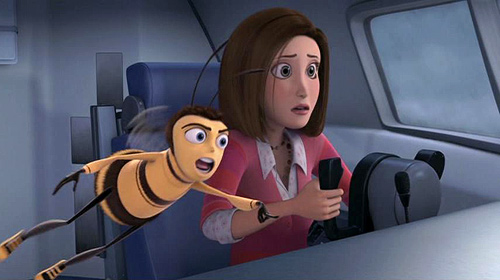So the USA lost to Belgium in the World Cup elimination round. I predicted a win for the US for a simple reason - Belgium, I said, does not know how good it is, whereas the US does.
That's fuzzy logic, right? Well, that is what a lot of sports analysis is, because analysis at its heart relies on subjective scouting. Pundits can pretend to science it up all they want, but they are just doing a Bayes analysis based on real results after they happen. Something like a 68% chance of a victory is useless in the real world unless you are a bookie. It sounds science-y, but sports is a 0 or a 1. Anything in between is a waste of time.
IBM takes data seriously, as seriously as they took Business Machines back in their early days.
They want to be the resource for the blanket concept of The Internet Of Things. Someone will have to do it, because the amount of information available today is overwhelming. When you can produce 250 gigabytes of data an hour, you have too much data.
Or you are onto something big.
How deep is science writing these days? Pretty darn deep.
Way back when Science 2.0 started there were not a lot of great science writers. There were well-known ones, but not great ones. Journalism was in flux and mainstream media didn't respect it much, and scientists respected science journalism even less than media corporations did. The best writers just didn't go into science journalism. One of the reasons that a pillar of the Science 2.0 mission was revamping science 'communication' was because the public had stopped respecting journalists and scientists felt like they got a lot of things wrong. If science journalism couldn't win Pulitzer Prizes, at least it could be accurate and that meant making scientists the journalists.
Generally speaking, when a politician goes on television and says he is creating a special task force to look at a product, you know what happened; someone wrote about it in the New York Times and someone did a poll and someone else told him it would look presidential to be bold.
Want to scare people about a pesticide? Compare it to DDT. 40+ years after it was banned in a bit of scientization of politics, people have still heard of it. DDT may be the only pesticide many people have ever heard of. Environmental groups love to invoke it for that reason.
But if you are a fan of science, when you see a DDT comparison, you know evidence has left the building. DDT, when misapplied, was bad, just like every other compound, including water, can be bad. There was nothing exceptional about it other than the fact that it could have saved millions of kids from malaria if activists were forced to do studies before issuing press releases. But once you get a Joni Mitchell song written about your product, someone in Congress is going to take action.
If you haven't yet read that mothers who lived near farms have more kids with autism, you will. The reason, it is said, is because farms use pesticides. You're not off the hook, organic farmers. The results are from California and there are lots and lots of organic pesticides in use in the study area.
 Marijuana For ADHD?
Marijuana For ADHD? Rutgers Study - Forcing DEI Programs On People Increases Hostility
Rutgers Study - Forcing DEI Programs On People Increases Hostility Minnesota Trial Lawyers Want To Ban Neonics - Here Is Why That Is A Mistake
Minnesota Trial Lawyers Want To Ban Neonics - Here Is Why That Is A Mistake The Toxic Masculinity Of Disney Movies
The Toxic Masculinity Of Disney Movies








